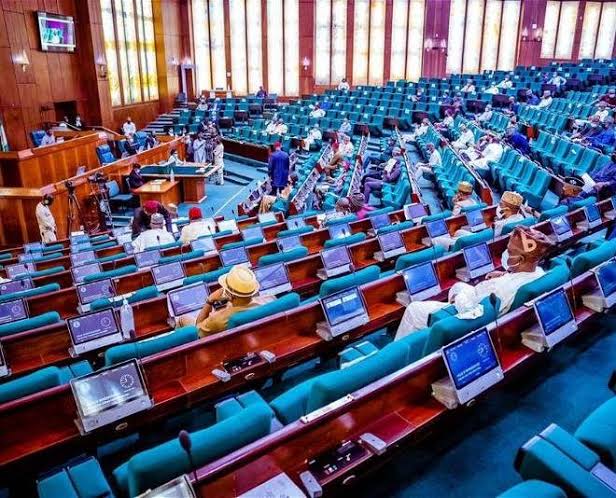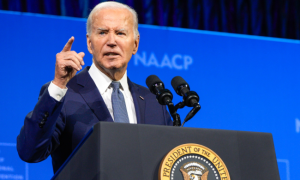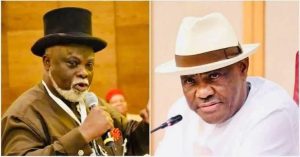Nigerian Lawmakers Move to Create Office of Prime Minister
In a landmark development within the Nigerian legislative process, lawmakers in the House of Representatives have introduced a proposal to amend the country’s constitution, seeking the creation of the office of the Prime Minister. This bill, which was passed for second reading on March 27, 2025, marks a significant push toward the restoration of Nigeria’s parliamentary system of government. If the proposed amendments are enacted, they would shift executive authority from the office of the President to the Prime Minister, fundamentally altering the structure of Nigeria’s political system.
The bill, titled “A Bill for an Act to Alter the Provisions of the Constitution of the Federal Republic of Nigeria, 1999 to Provide for the Office of the Prime Minister as Head of Government and the Office of President as Head of State and to Provide for a Framework for the Mode of Election to the Said Offices and for Related Matters,” was introduced by Minority Leader Kingsley Chinda, along with 59 other co-sponsors. This proposed legislation aims to return Nigeria to the parliamentary system of government that the country operated under during its First Republic, from 1960 to 1966.
YOU MAY READ
A collection of distorted facts and a good reference material for criminals – Vatsa family slams IBB’s new book
Before Nigeria’s shift to the current presidential system of government following the 1966 military coup, the country operated under a parliamentary system. During the First Republic, Sir Abubakar Tafawa Balewa served as the Prime Minister, while Dr. Nnamdi Azikiwe held the ceremonial position of President. In this system, executive authority rested with the Prime Minister, who was elected from the majority party in parliament. The President, on the other hand, performed largely symbolic duties as Head of State, with a role that was largely ceremonial in nature.
The parliamentary system was abruptly ended by the 1966 military coup, which resulted in the installation of military rule in the country. Since then, Nigeria has operated under a presidential system of government, with the President serving as both the Head of State and Head of Government. Under this system, executive powers and functions are concentrated in the office of the President, who is both directly elected by the people and serves as the primary authority in running the country.
YOU MAY READ
Gowon Is Not The Enemy: Nnamdi Azikiwe Is Why Biafra Has No Legal Right To Secede
The proposed bill seeks to return to this earlier system, where the President would serve as a ceremonial figurehead, and the Prime Minister would be the head of government. This shift, if enacted, would significantly change the dynamics of Nigeria’s executive branch, creating a system in which the Prime Minister is accountable to the legislature and the President’s role is largely symbolic.
The bill proposes several key amendments to the 1999 Constitution to facilitate this shift from a presidential system to a parliamentary one:
- Creation of the Office of the Prime Minister: The bill seeks to introduce the office of the Prime Minister as the Head of Government. The Prime Minister would be selected by the legislature from among its members, likely from the majority party or coalition in parliament. The Prime Minister would be vested with executive powers and be responsible for running the government, making policy decisions, and overseeing the implementation of laws.
- Role of the President: Under the new framework, the office of the President would remain, but the President would assume a largely ceremonial role as the Head of State. The President’s duties would be confined to ceremonial and symbolic functions, with executive powers being transferred to the Prime Minister.
- Election Process for Both Offices: The bill also proposes a framework for the mode of election to both offices. The Prime Minister would be elected by members of the legislature, while the President would continue to be elected by the people, but with reduced powers, mainly related to national representation and ceremonial matters.
- Accountability to the Legislature: The Prime Minister would be directly accountable to the National Assembly (or the legislature), and could potentially be removed from office by a vote of no confidence, similar to parliamentary systems in other countries. This would introduce a system of governance where the executive is directly linked to the legislature, potentially making the government more responsive and accountable to the legislative branch.
The bill is part of a broader effort to reform the Nigerian political system and to address some of the perceived shortcomings of the current presidential system. Supporters of the bill argue that a parliamentary system would lead to more stable governance, better representation in the executive branch, and greater political accountability.
The proposed shift to a parliamentary system would have wide-ranging implications for Nigerian politics. Several key aspects of governance would change, potentially affecting the balance of power, the relationship between the executive and legislative branches, and the general functioning of the country’s political system.
- Increased Legislative Power: The primary change under the new system would be the enhanced power of the legislature. In a parliamentary system, the Prime Minister is chosen from among the majority in parliament, and the government is expected to reflect the political makeup of the legislature. This would make the legislature more central to the process of governing, as the Prime Minister and the cabinet would be answerable to parliament.
- More Political Stability: Proponents of the parliamentary system argue that it can lead to greater political stability. In parliamentary systems, coalition governments are often formed between multiple political parties, which can help ensure that a broader range of political views is represented in government. This can result in more compromise and less political gridlock than in presidential systems, where power is often concentrated in the office of the President.
- Shift in Executive Authority: The shift of executive authority from the President to the Prime Minister could have significant effects on the way policies are formulated and implemented in Nigeria. The Prime Minister, chosen by parliament, would likely be someone who has the support of the majority of legislators, which could provide greater alignment between the executive and legislative branches. This could lead to more efficient decision-making and policy implementation.
- Potential for Greater Accountability: Under the parliamentary system, the Prime Minister is more directly accountable to the legislature, which can vote to remove the Prime Minister if they lose confidence in their leadership. This system of accountability could lead to greater responsiveness and transparency in government.
However, critics of the bill argue that such a dramatic shift in governance could create instability and confusion. They point to the challenges of transitioning from a presidential system to a parliamentary one, particularly in a diverse and complex country like Nigeria. Concerns about the concentration of power in the hands of parliamentarians, the potential for political instability, and the challenge of adjusting to a new system of governance are significant hurdles that lawmakers will need to address.
The proposed creation of the Office of the Prime Minister was one of 32 constitutional amendment bills passed by the House of Representatives during the plenary session on March 27. Other key amendments include:
- Reserved Seats for Women in National and State Assemblies: This bill seeks to reserve specific seats for women in the National Assembly and state houses of assembly. The aim is to increase female representation in the legislative process and ensure that women have a more prominent role in decision-making at the national and state levels.
- Pre-Election Petition Matters: This bill proposes to reduce the time frame for the determination of pre-election petition matters and establish specialized pre-election tribunals to handle these cases. The bill also seeks to regulate the process of suspending a member of the National Assembly from legislative duties.
- Qualifications for Elected Officials: This bill seeks to review the requirements for individuals seeking to be elected as President, Vice President, Governors, and Deputy Governors. The changes would address issues related to eligibility and ensure that candidates meet the necessary qualifications to serve in these high offices.
- Creation of New States: Bills for the creation of Wan State and Gobir State also passed second reading. These proposed states would seek to address the administrative needs of specific regions and enhance local governance
The passage of these bills, including the one creating the Office of the Prime Minister, is a significant step in the ongoing process of constitutional reform in Nigeria. However, the bills still have a long way to go before becoming law. After passing the second reading in the House of Representatives, the bills must be debated and approved by the Senate before they can be sent to the President for assent.
YOU MAY READ
Kaduna Nzeogwu & Co Did Not Start Nigeria’s Problem: A Reflection on Nigeria’s Struggles and the Seeds of Division by Rudolf Ogoo Okonkwo
The debate over the parliamentary system will likely continue, with both supporters and critics presenting their arguments. If the bill is successfully passed and signed into law, Nigeria would undergo a fundamental shift in its system of governance, moving from a presidential system to a parliamentary one. This transformation could have profound implications for Nigerian politics, governance, and the functioning of the state.
As Nigeria continues to explore reforms to its political system, the outcome of this bill could serve as a model for other countries considering similar shifts or reforms to their systems of government. Whether this move will lead to greater political stability, accountability, and effectiveness remains to be seen, but it is clear that the conversation about the future of Nigeria’s political structure is just beginning.





